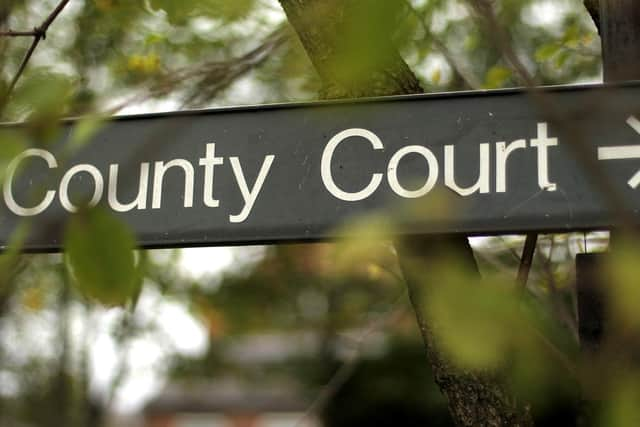Small claims speed up in civil court in Milton Keynes
and live on Freeview channel 276
Small claims are often used by people seeking their money back if something has gone wrong on a deal or purchase. They make up the vast majority of all cases at civil courts.
These are currently being heard in regular and emergency courts, as well as remotely, and are often used to claim less than £10,000 back for a faulty product, poor service or personal injury.
Advertisement
Hide AdAdvertisement
Hide AdThe Law Society of England and Wales said the coronavirus pandemic has exacerbated pre-existing issues nationally, and called on the Government to open additional Nightingale courts.


Ministry of Justice figures show the average time taken for small claims to go to trial in Milton Keynes County Court was 40 weeks between July and September.
This was a decrease on the average of 43 weeks between April and June, but an increase on the 37-week wait between July and September 2019.
But multi and fast track claims, which are used for more complex issues, took longer to reach trial in the most recent quarter – rising from 37 weeks between April and June to 62 in the most recent period.
Advertisement
Hide AdAdvertisement
Hide AdAcross England and Wales, the average time taken for small claims to go to trial rose to 49 weeks – almost two months longer than the previous period.
The time taken for multi and fast track cases rose slightly to 62 weeks over the same time.
The Law Society said there were already "significant backlogs" in the civil justice system after "years of underfunding and cuts to the courts", but this has been made worse by Covid-19.
President David Greene said extended Covid operating hours may be suitable for some cases, but he is not convinced they have delivered any significant additional capacity.
Advertisement
Hide AdAdvertisement
Hide AdHe added: "The pandemic has worsened delays for several reasons, including remote hearings not being suitable for all cases and parties sometimes not being able to physically attend courts due to safety concerns.
"To reduce the backlogs in civil courts, we urge the Government to increase court capacity by opening additional Nightingale courts and ensuring the judiciary are well-equipped and encouraged to conduct hearings remotely where needed.”
Between July and September, there were 87 trials at Milton Keynes County Court – 11 fewer than during the same period in 2019.
Across England and Wales, there were 11,000 county court trials over these months, a drop of 37% on July to September last year.
Advertisement
Hide AdAdvertisement
Hide AdThe Association of Personal Injury Lawyers said the pandemic has been a "catalyst for change and forward-thinking" in the courts – including bringing together claimant and defendant lawyers to develop a set of standard practices, and moving online more.
President Sam Elsby said: "Claimant and defendant lawyers have also worked hard, and continue to work together, to keep everything moving during the pandemic to ensure claims progress.
"As with everything else, it will take time for the civil courts to catch up and deal with the backlog, but this pandemic will leave a lasting legacy for the civil courts."
The Ministry of Justice said more than 628 court rooms are open for civil and family cases, and it was rolling out new video technology, recruiting more judges and increasing sitting days.
Advertisement
Hide AdAdvertisement
Hide AdA spokeswoman added: “Our world-leading response has kept the justice system running throughout the pandemic – urgent cases have been prioritised, remote hearings increased and extra courtrooms opened so cases can be heard as quickly as possible.”